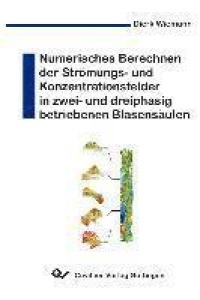
Liknande böcker
Untersuchung stationärer und dynamischer Vorgänge bei der Teerentstehung in Biomassevergasern und Gasreinigungen mit Hilfe der kontinuierlichen Teeranalyse
Bok av Björn Staiger
Biomass is an option to use renewable energy for the generation of heat, power and secondaryfuels to substitute fossil fuels. The thermochemical gasification is an alternative technology toconventional biomass combustion. Gasification technology can generate power with highefficiency even in small scale power plants. It gives the option to produce gaseous and liquidfuels or basic chemicals from solid biomass.The major obstacle for the application of biomass gasification is the high tar content of thegenerated gas. A number of different approaches in gasification and gas cleaning systems hasbeen developed in the past. However, tar production in the gasification process andincomplete removal of tars by the gas cleaning systems are still problems preventing thetechnical and economical breakhrough of the biomass gasification technology. Due to theseproblems the determination of the tar content is important in terms of research as well as inindustrial application. The established tar analysis methodes are based on wet chemicalsampling and GC-analysis. They are able to give detailed information about the different tarspecies existing in the gas. However, realtime process monitoring by measuring tarscontinuously is not possible up to now.An online tar measurement method has been developed at the Institute of Process Engineeringand Power Plant Technology (IVD) of the University of Stuttgart. The method is based on thecomparison of the total hydrocarbon content in the hot gas and the corresponding value of thegas with all condensable tars removed. The hydrocarbon levels are measured by a flameionization detector. The difference in the hydrocarbon levels corresponds with the tarconcentration in the producer gas. The measurement system allows a sequential samplingfrom two sampling points, i.e. the producer gas before and after the gas cleaning system. Onecomplete sampling and analysis run lasts two minutes, allowing a quasi online analysis of thetar concentration. This allows a continuous process monitoring.Different types of gasifiers, such as fixed bed gasifiers or fluidised bed gasifiers in laboratory,pilot- or industrial scale have been investigated with the online measuring system. Biomass inthe form of pellets and wood chips was used as well as special fuels like sewage sludge orRDF. Experiments have been done by sampling in the raw gas of gasifiers as well as in theclean gas. This was in order to evaluate the performance of the tar analyser on the one handand to increase the knowledge about the dynamics of tar generation in gasification processesand of tar reduction in gas cleaning devices on the other hand. The results of the measuringsshowed variable tar concentrations in a range of a few milligrams up to about 40 g/m³.Validation with other tar analysing methods was carried out to detect correspondence anddifferences. This allows the interpretation of the obtained results. The thesis gives a succesfuldemonstration of the online Tar-Analyser being a suitable instrument to be used in researchand industry and finally to help to improve gasifier technology.







